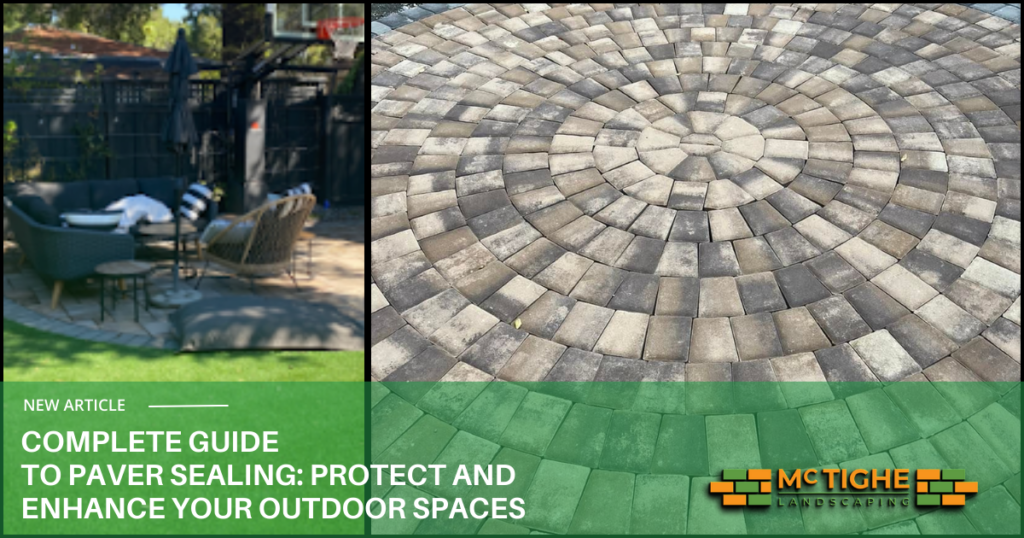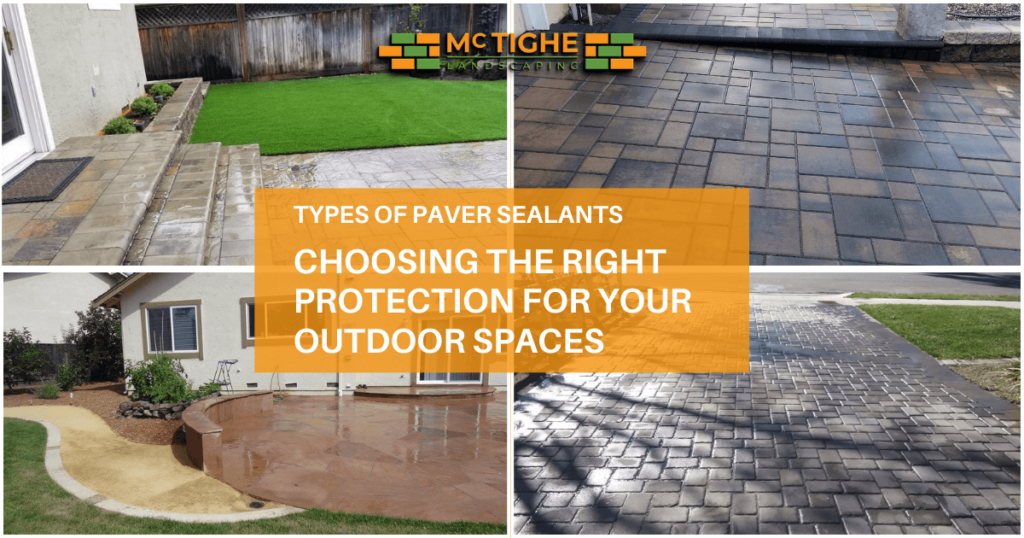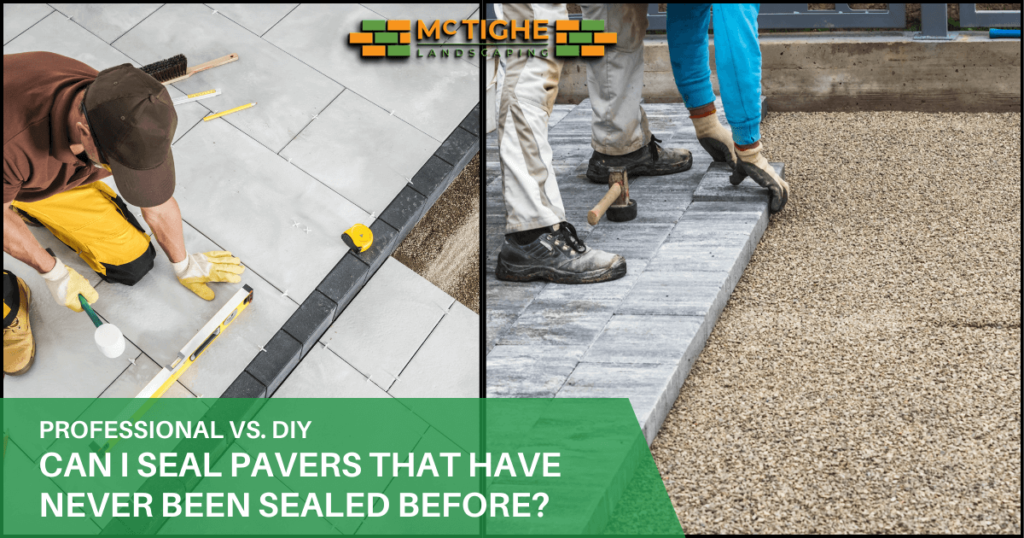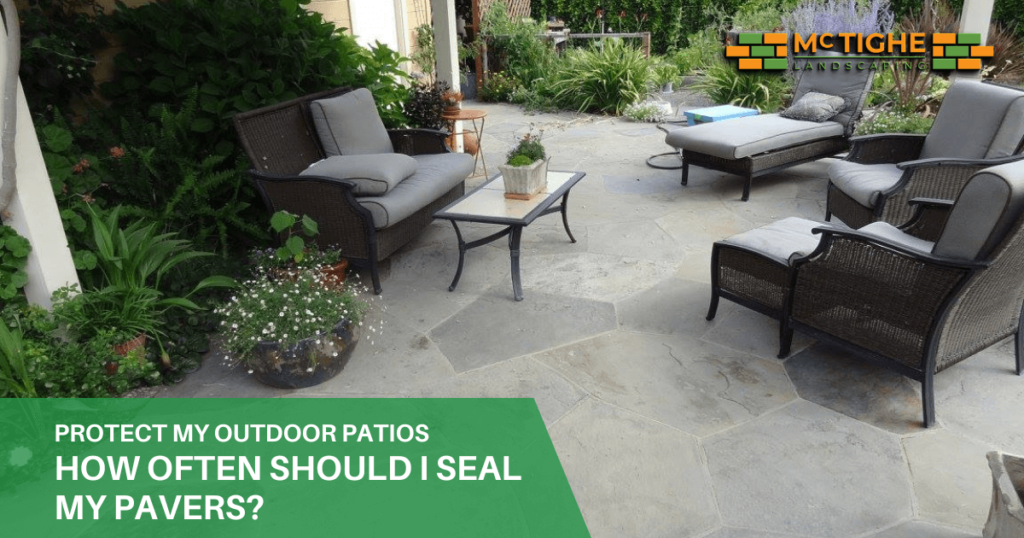- Mountain View, California
- Cupertino, California
- Saratoga, California

Are you wondering if sealing your pavers is really necessary? You’re not alone. Welcome to the guide to paver sealing: protect and enhance your outdoor spaces! As a seasoned landscaping professional, I’m often asked about the importance of paver sealing. The short answer is: yes, sealing your pavers is crucial – but there’s more to it than just applying a product. Let’s dive into the world of paver sealing and uncover why it’s a vital step in maintaining your outdoor spaces.
Pavers are a popular choice for outdoor spaces, adding beauty and functionality to patios, driveways, and walkways. However, many homeowners overlook a crucial step in maintaining these surfaces: sealing. As a seasoned landscaping professional, I’ve seen firsthand the dramatic difference that proper sealing can make in the longevity and appearance of paver installations.
Our complete guide to paver sealing wouldn’t be complete without discussing the types of sealants available. There are two main categories:
These create a visible layer on the paver surface, offering the highest level of protection.
These penetrate the paver surface without creating a visible film.
Choosing the right sealant is crucial for achieving the best results in protecting and enhancing your outdoor spaces. Consider:

Knowing when to seal is a crucial part of our ultimate guide to paver sealing. Proper timing ensures the best protection and enhancement of your outdoor spaces.
Plan to reseal your pavers every 3-5 years, but be aware of signs that resealing is needed:
Even with the best intentions, mistakes can happen. Our ultimate guide to paver sealing helps you avoid these common pitfalls:
Proper maintenance extends the life of your sealed pavers:
Our complete guide to paver sealing wouldn’t be complete without a detailed walkthrough of the process:

As part of our ultimate guide to paver sealing, we emphasize environmentally friendly practices:
Stay ahead with these emerging trends:

Sealing your pavers is more than just a cosmetic treatment—it’s a crucial step in protecting your investment and ensuring the longevity of your outdoor spaces. By understanding the process, choosing the right products, and following proper application techniques, you can enhance the beauty of your pavers while significantly extending their lifespan.
Remember, whether you choose to tackle paver sealing as a DIY project or hire a professional, the key to success lies in thorough preparation, careful application, and ongoing maintenance. With the knowledge gained from this guide, you’re well-equipped to make informed decisions about paver sealing and enjoy beautiful, protected outdoor spaces for years to come.
Ready to protect and enhance your paver investment? Don’t leave your beautiful outdoor spaces vulnerable to stains, fading, and wear. Our expert team at McTighe Landscaping is here to help you choose the right sealant and apply it correctly, ensuring long-lasting protection for your pavers. and enhancement for your outdoor spaces.
Contact us today for a free consultation and quote. We’ll assess your specific needs and provide professional recommendations tailored to your outdoor space.
Call: (669) 232-8050 to schedule your paver sealing service.
Alternatively, you may let us know what project you have in mind by filling out the information in this form.
Let’s work together to keep your hardscaping looking beautiful for years to come!
We service the following areas Los Gatos, Sunnyvale, Mountain View, Saratoga and Cupertino California.
Generally, pavers should be resealed every 3-5 years. However, this can vary based on climate, usage, and the type of sealant used. Look for signs of wear like color fading or increased staining to determine if it's time to reseal.
It's best to wait before sealing new pavers. For non-film-forming sealants, wait at least one week. For film-forming sealants, allow 30 days for the pavers to cure properly before sealing.
Some sealants, particularly those with a high-gloss finish, can make pavers slightly slippery when wet. If this is a concern, choose a sealant with a matte finish or one that includes anti-slip additives.
Yes, you can seal pavers that have never been sealed before. In fact, it's a great way to protect and enhance older paver installations. Just ensure they are thoroughly cleaned and in good condition before applying the sealant.
The durability of paver sealing depends on various factors, including the type of sealant used, climate conditions, and amount of foot traffic. On average, a good quality sealant should last 3-5 years before needing reapplication.

